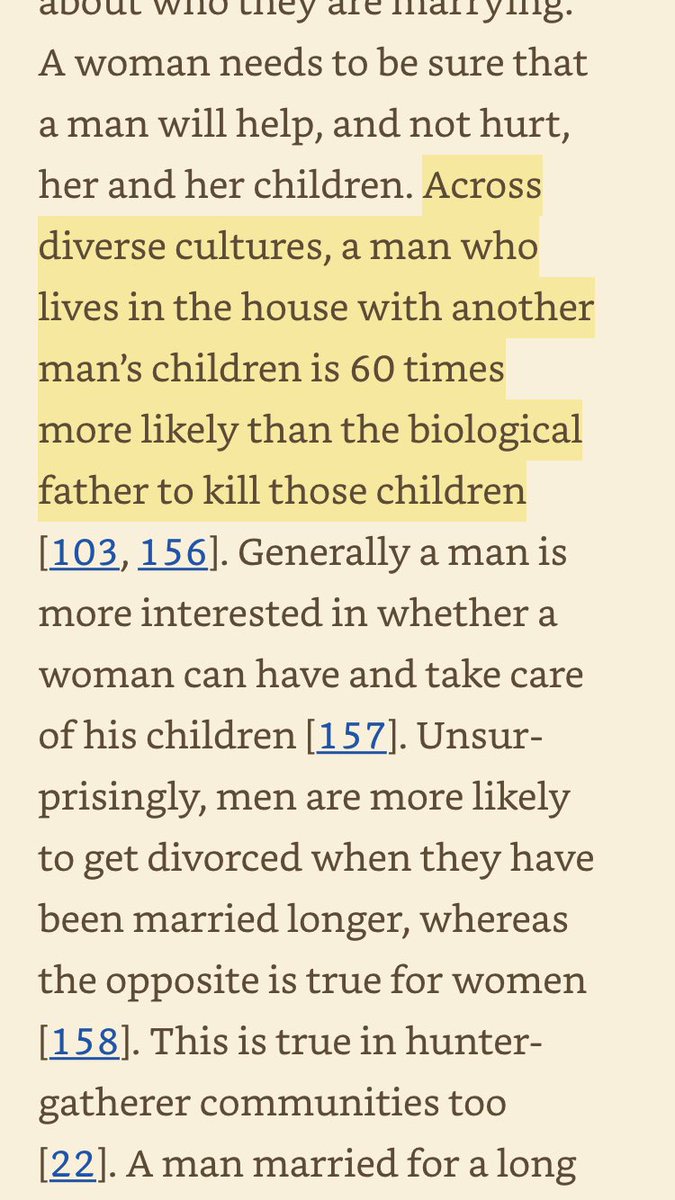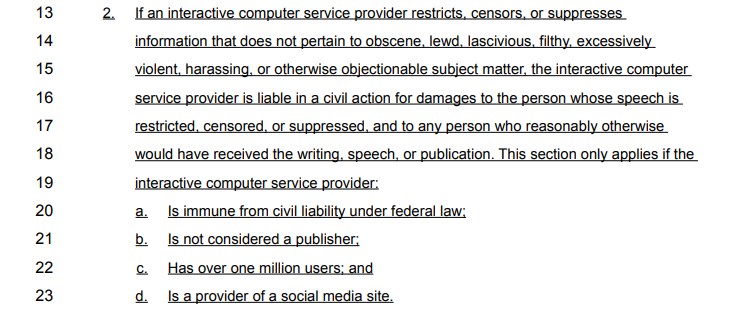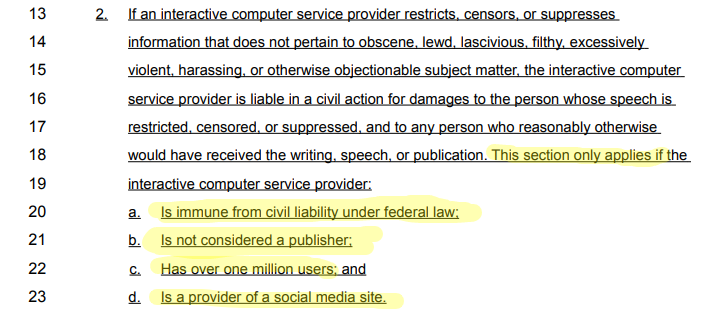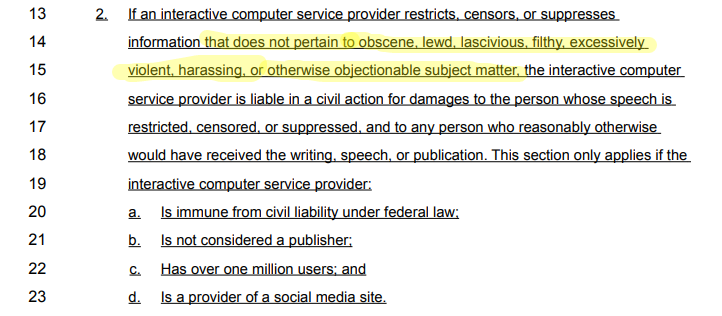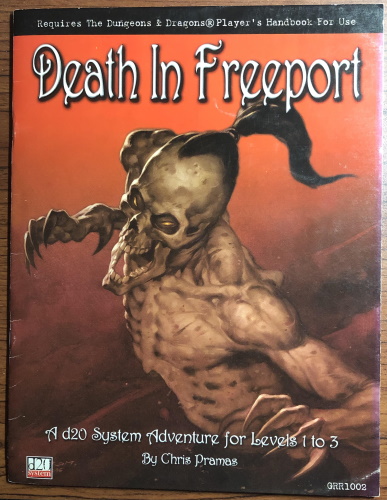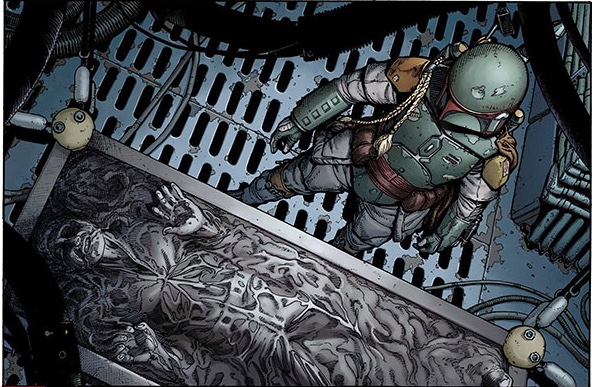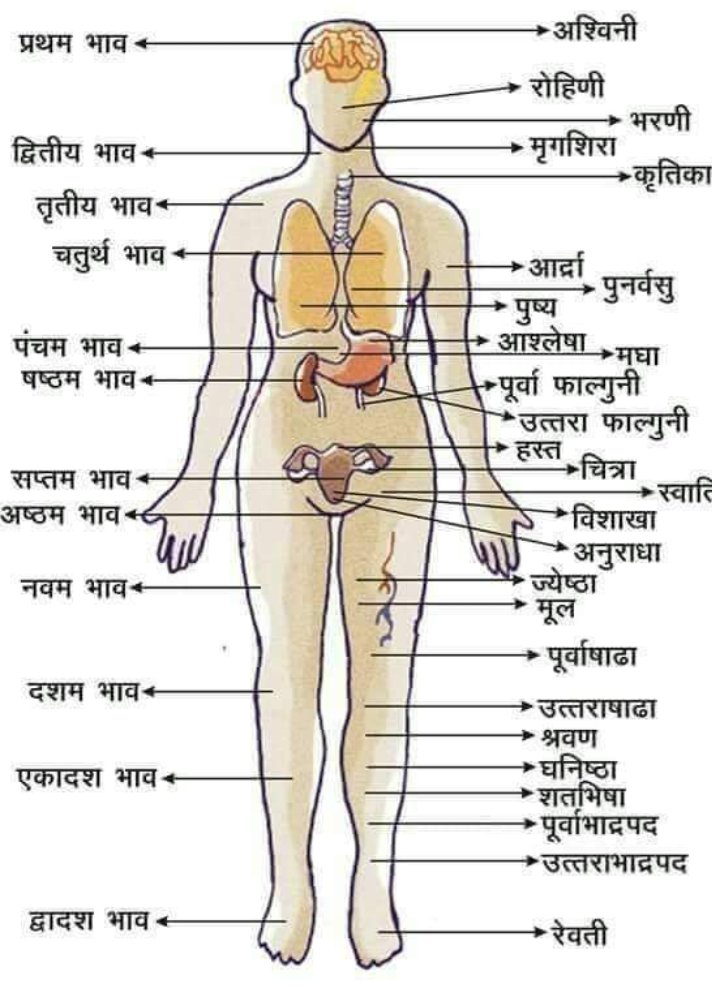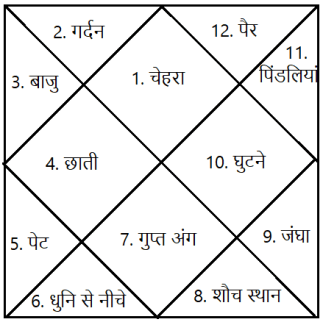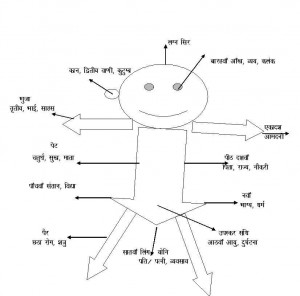OK, let's start talking about the House's 80 page brief on impeachment. It really is an incredibly well-done piece of work. There are some things I'd do differently and some pieces I didn't love, but overall, it's very very good.
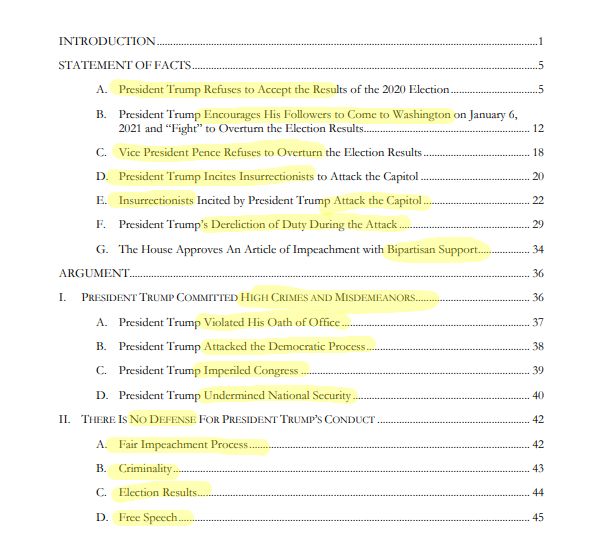
1) Why, on their own merits, Trump's conduct requires conviction
2) Why Trump's defenses don't fly
3) The Senate can convict Trump even though he's out of office
And 27 pages - again, a whole brief by itself - on "ex-President"
They're pretty confident that they can get whatever R-votes are gettable on the basics; after all, those Senators lived through the Capitol assault, they know what's what. But ...
More from Akiva Cohen
EVERYTHING you could possibly get wrong in a complaint, they managed

Start with the plaintiffs. The ONLY claims in the lawsuit are that the Constitution gives state legislatures the right to set the manner of elections, which they have allegedly (we'll get to this insanity) failed to do.
There's oodles of caselaw saying "since that's a right of the state legislature, only state legislatures, as a body, can bring such a claim"
Are the plaintiffs state legislatures?
https://t.co/KJGEvm8Owp

OK, what about the Defendants? They've sued Defendants from, IIRC, five states (GA, PA, WI, MI, AZ) based on claims that the State Legislatures there didn't pass election rules that the plaintiffs insist the Constitution requires (I promise, we'll get there).
\U0001f6a8BREAKING: Trump files new federal court lawsuit in Wisconsin challenging the results of the election.https://t.co/LfKb2PUIkq
— Marc E. Elias (@marceelias) December 3, 2020
Not, I hope, Seth Abramson long. But will see.
I apologize in advance to my wife, who would very much prefer I be billing time (today's a light day, though) and to my assistant, to whom I owe some administrative stuff this will likely keep me from 😃
First, some background. Trump's suit essentially tries to Federalize the Wisconsin Supreme Court complaint his campaign filed, which we discussed here.
OK, #squidigation fans. This is a new Wisconsin case not filed by the Krake[n/d] team of Powell and Wood and NOT focusing on wild conspiracy theories. It's a competent and professional filing that raises things that would be real issues ... if you don't understand why they aren't https://t.co/ETvUiWV5du
— Akiva Cohen (@AkivaMCohen) December 1, 2020
If you haven't already, go read that thread. I'm not going to be re-doing the same analysis, and I'm not going to be cross-linking to that discussion as we go. (Sorry, I like you guys, and I see this as public service, but there are limits)
Also, @5DollarFeminist has a good stand-alone thread analyzing the new Federal complaint - it's worth reading as well, though some of the analysis will overlap.
Every one of these Trump election suits is the same gobbledygook garbage barge:
— Liz Dye (@5DollarFeminist) December 3, 2020
FRAUD!
It coulda happened.
Well, no, we can't prove it.
But just to be safe, best let the gerrymandered legislature give us all the electoral votes!https://t.co/Z926668H05 pic.twitter.com/xGZsJKIO7Y
Here's the meat of their intro: Amazon isn't being fair to us. They're holding us to a higher standard than Twitter - they say we allow violent content, but look what Twitter does!
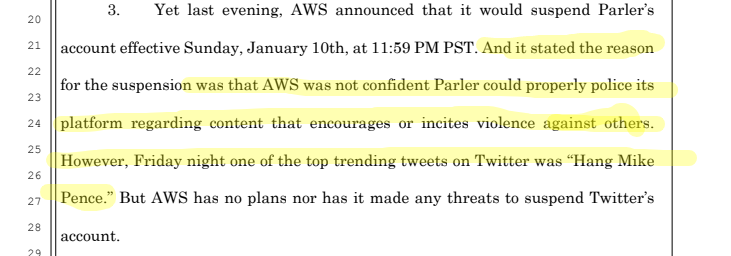
There are a few problems with this approach. First, there's a factual problem: Twitter and Parler take very different approaches to moderation. Hell, *that's Parler's entire pitch.* So "we're the same as Twitter, why are you treating us different" isn't going to fly
ALSO, the hashtag was mostly people saying "these folks are calling to hang Mike
Five minutes of scrolling a search for #hangmikepence, a gallery: pic.twitter.com/40hsyJNK50
— Jawafawa (@jawafawa) January 11, 2021
And ALSO also, did anyone notice any prominent right wingers complaining about losing tens of thousands of followers yesterday? You know why they did? Because Twitter has been active in deleting accounts that violate its TOS
More from Culture
1. Atomic Habits by @JamesClear
“If you show up at the gym 5 days in a row—even for 2 minutes—you're casting votes for your new identity. You’re not worried about getting in shape. Youre focused on becoming the type of person who doesn’t miss workouts”
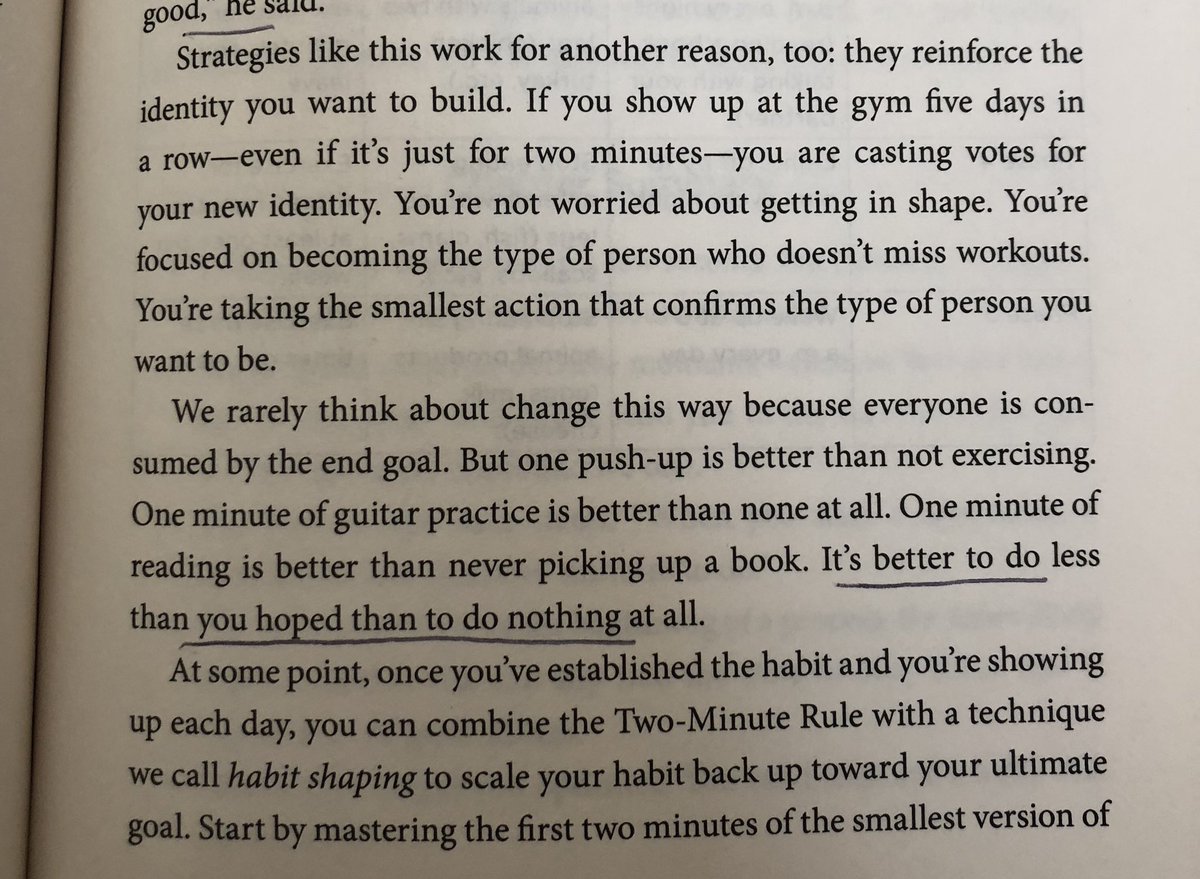
Good Reasons for Bad Feelings
https://t.co/KZDqte19nG
2. “social anxiety is overwhelmingly common. Natural selection shaped us to care enormously what other people think..We constantly monitor how much others value us..Low self-esteem is a signal to try harder to please others”
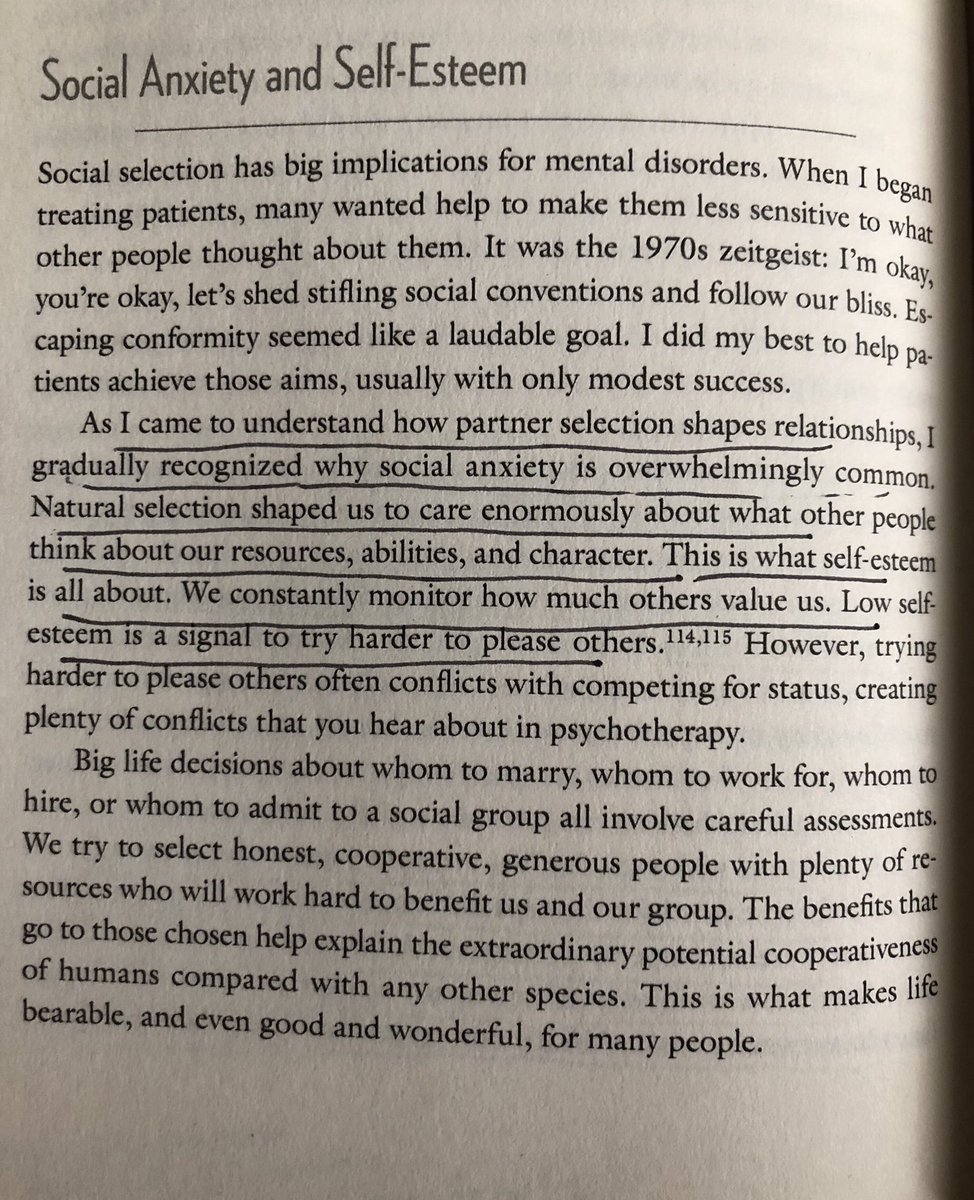
The True Believer by Eric Hoffer
https://t.co/uZT4kdhzvZ
“Hatred is the most accessible and comprehensive of all unifying agents...Mass movements can rise and spread without belief in a God, but never without a believe in a devil.”

Grandstanding
https://t.co/4Of58AZUj8
"if politics becomes a morality pageant, then the contestants have an incentive to keep problems intact...politics becomes a forum to show off moral qualities...people will be dedicated to activism for its own sake, as a vehicle to preen"
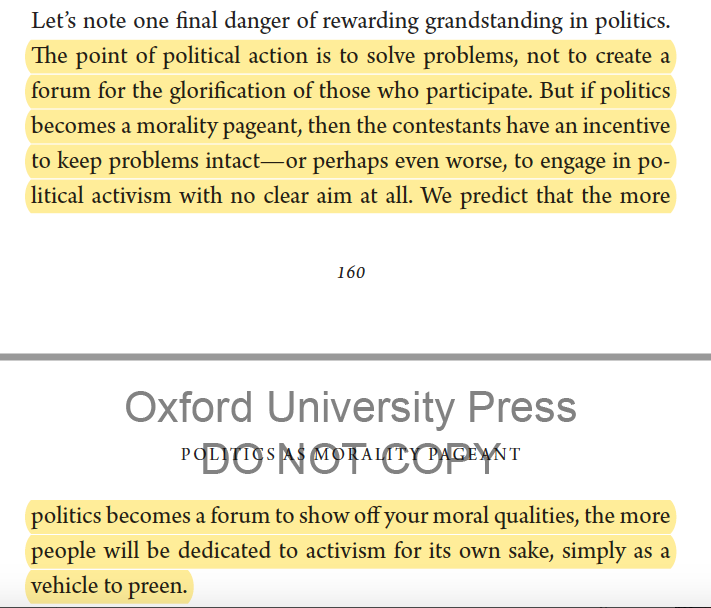
Warriors and Worriers by Joyce Benenson
https://t.co/yLC4eGHEd4
“Across diverse cultures, a man who lives in the house with another man’s children is about 60 times more likely than the biological father to kill those children.”
